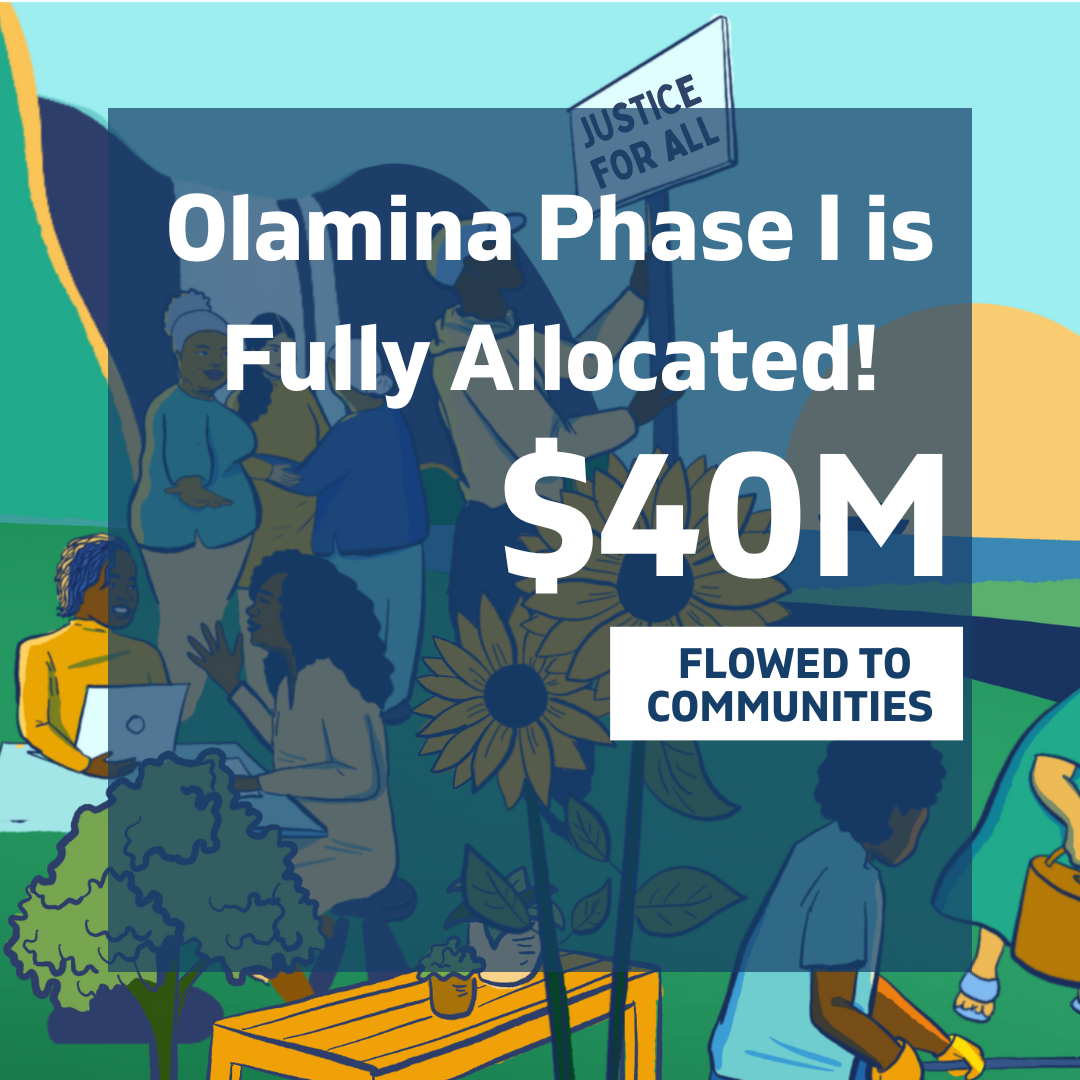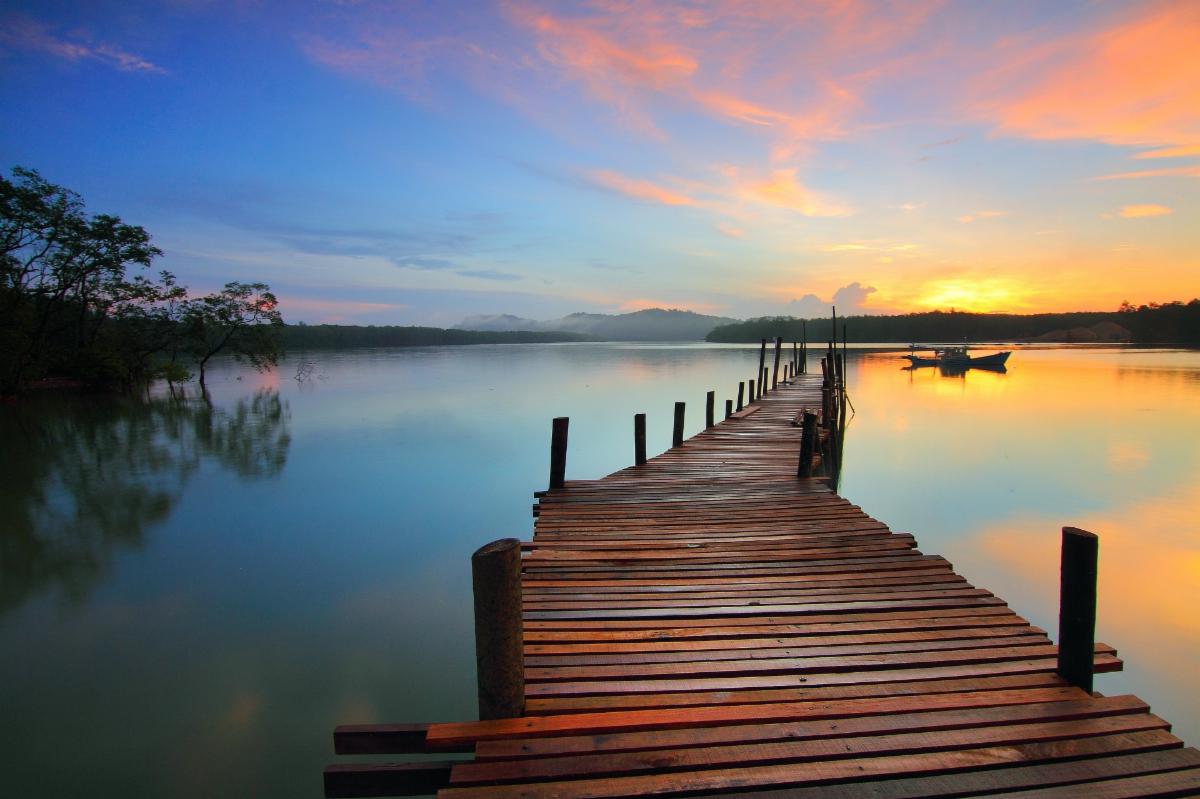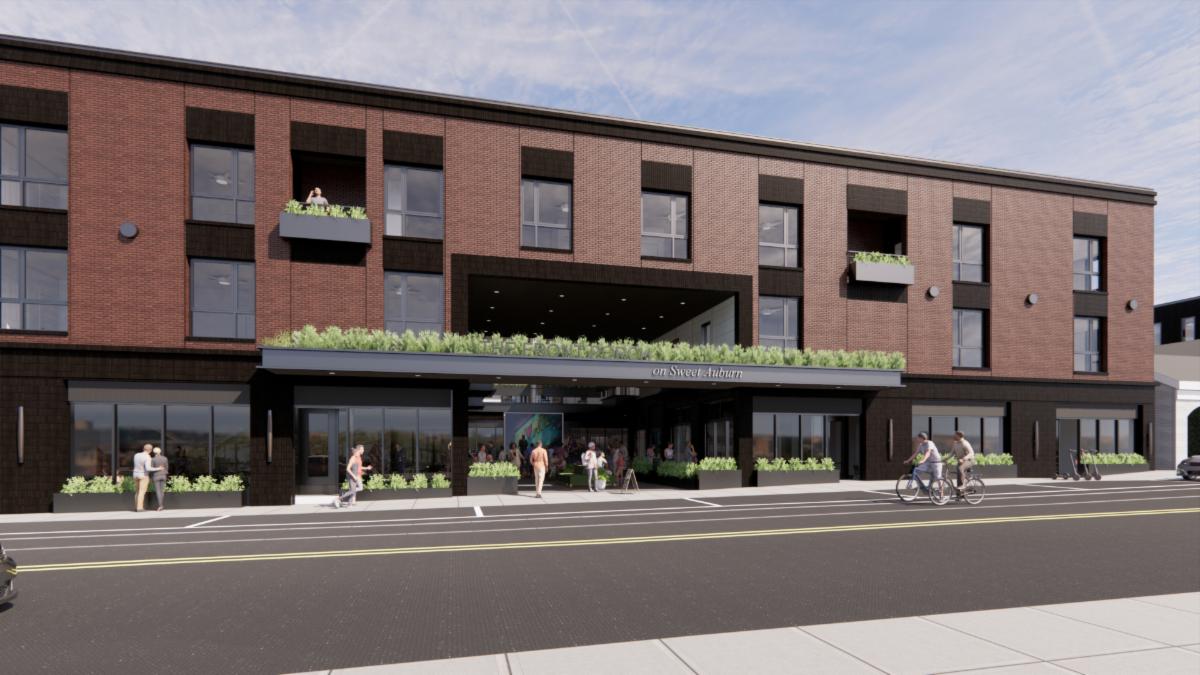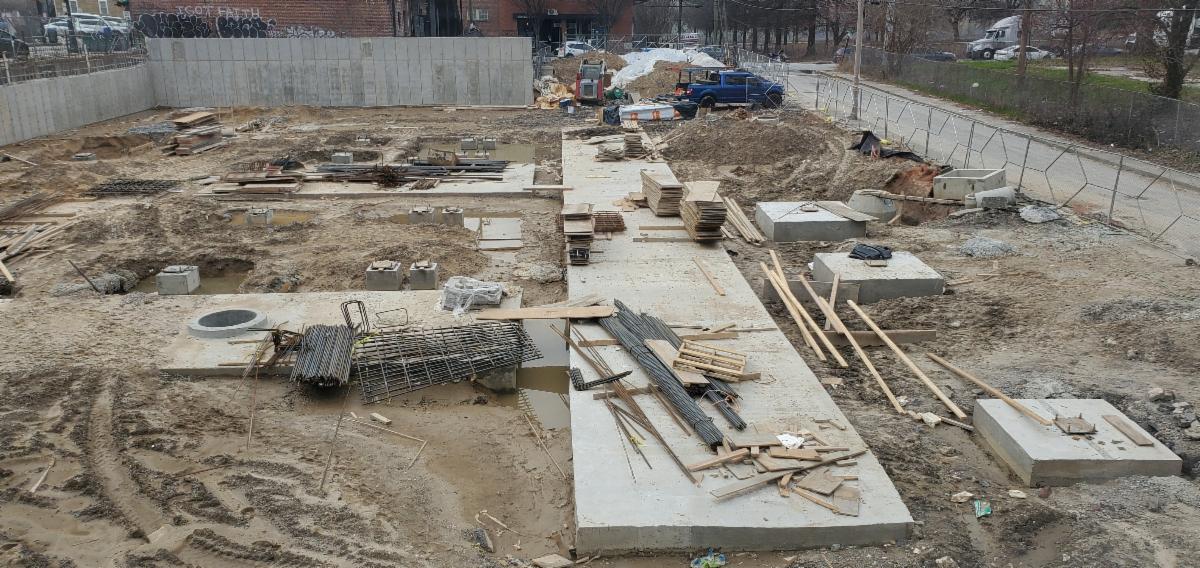 | |
Candide Group is thrilled to announce the official close of the first phase of the Olamina Fund!
The Olamina Fund launched in October 2019 as a $40M loan fund with the goal of addressing the historic lack of access to capital in American communities — particularly Black, Native, and rural — who have faced decades of divestment and intentional extraction. Our core impact thesis was built around the principles of representation, community-centered products and services, access to capital, and community wealth-building.
Representation to us is reflected by the lived experience of an organization's decision-makers and how close it is to the community served. We look for organizations that develop, design, and customize financial products around a community's needs and refine their products and services based on community feedback. We fund organizations that are led by women, Black, Indigenous, and other people of color who have systemically lacked access to capital as a means to address the racial wealth gap in our country (the US). We also examine the extent to which an organization emphasizes community wealth-building through its connection and engagement with the community and through its focus on access to capital, housing, quality food, healthcare, public services, and education.
With the continued leadership of Leslie Lindo as Managing Director and the dedication of Portfolio Manager Leticia Corona, we are proud to have fully invested the first phase of the Fund in alignment with our impact thesis. This $40M includes $20.3M invested into the Deep South, $17.5M into the Rural US, and $9.5M into Indian Country through 22 CDFIs, private loan funds, and other community empowerment organizations that focus on serving these communities. We committed 100% of our capital into BIPOC and women-led organizations. Our initial goal was 80%.
This marks a significant step in how we reinvest in the communities that have been most harmed by the financial system. Olamina was created to demonstrate that the organizations which are led by people from the community they serve —
and which center the needs of that community — are ultimately best able to manage resources and risk than those who are not. To date, all of Olamina's loan clients are current on payments and in compliance, and we have not had any write-offs — even through the tumultuous pandemic years.
|  | |
The Olamina Fund centered community from its inception; recognizing the gap between community-led institutions, CDFIs, and private funds that were seeking patient and flexible capital to fund their loan programs, and investors with an appetite for providing loans to be activated for social and racial justice. Candide Group's Founding Partners — Aner Ben-Ami and Morgan Simon — conceived of a fund to close this gap. The fund's Founding Managing Director Lynne Hoey spent two months learning from over twenty-five peers, movement leaders, and potential loan clients to develop the various aspects of the Fund, from its theory of change to its structure. Organizations that shared their experience and provided input included RUNWAY, Chordata Capital, Nwamaka Agbo Consulting, Common Future, Kitchen Table Advisors, Social Impact Strategies Group, Oweesta, and Associated Tribes of Northwest Indians Economic Development Corporation.
In her role as Director of Operations at Candide during this time, Laurika Harris-Kaye also held community conversations to invite further feedback on the design and structure of the Fund, including the implications of having a white woman lead a racial-justice-oriented fund. The name "Olamina" was chosen for the Fund by Jasmine Rashid to reflect the determination of Lauren Olamina, Octavia Butler's protagonist from Parable of the Sower & Parable of the Talents, who boldly leads her community to search for a better future in the midst of their dystopian reality.
A community governance structure was intended for the Fund early on, and the community advisor board model that we designed was informed by the feedback sessions. The purpose of Olamina's Community Advisory Board ("CAB") is to shift traditional power dynamics in the financial system. We formalized this governing body by stating it in our investment documents.
The CAB consists of members who represent the communities where we invest. They advise our strategy, review opportunities from a community wealth-building perspective, and participate in credit decisions as part of the Credit Committee that approves all loans.
We are grateful for the contributions the CAB has made since the group formed in September 2020. From the beginning, we have considered ourselves facilitators of the CAB, leaving critical decision-making to these community leaders. At the time of the CAB's formation, Olamina had only made five loans. From their first month, the CAB set the priority for our following investments, and since June 2021, they have each been participating members of the Credit Committee. To date, the CAB's contribution has been:
-
Setting the priority for 11 investment opportunities, leading to eight loans totaling $13M in investments.
-
Reviewing and approving nine loans totaling $11.3M in investments.
-
Directing a total of 60% of the financial capital Olamina has invested to date.
We are working with the Community Advisory Board to finalize the democratic governance structure of the Fund and set the vision and strategy moving forward. They will also contribute to investor evaluation and selection in Olamina's next phase.
"My understanding of the financial world has grown so much on this committee. The staff at Candide and work with the Olamina fund, you all are amazing and the impact of this work has made worlds of difference. [It's] an honor to have learn with you all. Thank you for this opportunity to serve."
~ Prairie Rose Seminole, Olamina Community Advisory Board Member
| What's Next for the Olamina Fund? |  | |
As we reflect on lessons learned from the first phase of Olamina and think about the next phase of the Fund, it is clear to us that there is increased opportunity to support more emerging funds, initiatives that transfer land and real estate to community control and stewardship, and other community-centered business models that support cultural preservation, permanent affordability, and shared ownership of businesses.
These investments require even more patient and flexible capital than the CDFIs and established loan funds that we support. We have begun learning what it means to be a partner in this work through some of the investments we have made in Olamina's first phase, such as Historic Clayborn Temple, Partnership for Southern Equity, Kibilio Community and Farm, Historic District Development Corporation, Urban Tilth, and the Port of Africatown. In the first part of this year, the Olamina team will have a deeper exploration into what is needed to best support the long-term vision and viability of these models and structure the next phase of the Fund accordingly.
Opening Up to New Investors
Olamina was fortunate to partner with investors in the initial phase of our Fund who were (and remain) committed to leveraging their wealth for deep impact. As we structure the next phase of the Fund based on those we seek to serve, this will set the priority for the type of funding we seek from Olamina's next group of investors. We look forward to being in conversation and partnering with investors who are also committed to healing, power-sharing, and self-determination within communities that have been intentionally disinvested from and invisibilized.
We welcome those who are interested in continuing on this journey with us. Please contact Leslie Lindo directly at Leslie@CandideGroup.com if you or people you know would like to learn more about the process of joining our investor community! Olamina will formally open up to accredited investors in the second half of this year. We look forward to hearing from you!
Recruiting New Community Advisory Board Members
The Community Advisory Board is central to Olamina Fund's design and strategy, and we're thrilled that all current members will stay on for the next phase! We will also add three new members to round out the board and expand representation to include those who have experience in the work we will prioritize in our next phase. Stay tuned for more information about how you or someone you know could be the perfect fit when we open applications this Summer!
Lifting Up Community Stories
Candide Group published our first comprehensive Impact Report In February 2023, and we look forward to sharing an Olamina-specific follow-up that highlights the work of our loan clients.
And as we continue to grow and learn as a fund, we want to share our reflections to support the progression of racial and economic justice in the impact investing space. Perspectives will include the CAB's experiences in directing capital, loan clients' experiences in supporting community self-determination, and field learnings on investing as a debt vehicle with the lens of restoration and reparations.
| |
CLIENT SPOTLIGHT: HISTORIC DISTRICT DEVELOPMENT CORPORATION | |
 | |
Historic District Development Corporation (HDDC) was founded by Coretta Scott King in 1980 to preserve the residential assets around Dr. Martin Luther King Jr's birth site on Auburn Avenue in Atlanta, Georgia. It is known for being among the oldest community development corporations in the country. HDDC is currently led by Chenee Joseph — a lifelong resident of Atlanta and a community development professional — and a team of primarily Black women whom all have a commitment to equitable development in Atlanta. For many, HDDC represents a bridge between the past and the future, honoring history while continuing to look forward to driving economic growth and prosperity for generations to come.
HDDC is instrumental in supporting the community by providing affordable housing and retail options for long-time residents and business owners. What is unique about HDDC is how it centers and engages the community in its decision-making processes. The neighborhood is regarded as its co-developer, and community members directly participate in the projects from feasibility through development. HDDC is transparent and inclusive in its practices by holding numerous community conversations to receive input on what community members need or would like to be developed. Its staff attends business and neighborhood association meetings, stakeholder sessions, and other various meetings where they receive feedback from the community on their programs and projects.
Example Project: Front Porch
Front Porch is a 60,000-square-foot mixed-use project with the mission of revitalizing the historic Sweet Auburn corridor in Atlanta. The 18-month construction project broke ground on July 6, 2022. Front Porch will offer 36 units of affordable housing to serve low- or moderate-income families. The 30,000-square-foot commercial space will serve local artists, entrepreneurs, and community members. HDDC is committed to keeping at least 20% of the retail space below market rate. The 9,000-square-foot rooftop will offer a community garden and area for health classes, community organizing, and other events. In addition to new construction and development, the project consists of renovating existing retail units that will be made into affordable pop-up spaces for local businesses and co-working spaces for artists.
Front Porch stands out as the first equitable development for the city. HDDC defines equitable development as investing in new construction projects that do not cause gentrification and displacement but rather focus on inclusiveness and accessibility. This is done by designing mixed-income and mixed-used development that allows residents of low to modern socioeconomic backgrounds to afford to live near their work, shop in nearby healthy grocery stores, and be part of a community that celebrates their diverse cultures.
Why Olamina Invested
While HDDC is in a solid financial position to maintain its current affordable housing inventory and development projects, it contends with market-rate developers in a competitive real estate market. During our trip to Atlanta, we saw first-hand the many properties that HDDC had an interest in preserving that went to outside developers who did not have a connection or interest in the community. Keeping properties affordable and rented to the Black community by a Black-run developer is critical for Atlanta.
Olamina invested in HDDC because of its commitment to advancing racial equity and building intergenerational wealth for families who grew up in the neighborhood. Our investment has allowed HDDC to refinance extractive debt obligations, fill a gap in construction costs for the Front Porch project, and advance other development projects.
|  | |
Olamina's Most Recent Investments | | |
|
Nexlegacy
Nexlegacy is a construction company that provides services to communities in the Deep South impacted by natural disasters, specializing in residential and commercial reconstruction. Many of the communities affected by climate change in the US are primarily Black and Brown neighborhoods, and it is Nexlegacy's mission to bring that representation to the reconstruction and recovery efforts in historically extracted areas. Olamina Fund's investment will help Nexlegacy pursue the goal of becoming the first Black-owned Disaster Prime Contractor in an industry that primarily serves Black and Brown communities.
| | |
Urban Tilth
Urban Tilth is a Richmond, CA-based nonprofit that aims to inspire, hire, and train local residents to cultivate agriculture. Since 2005, it has been feeding the people, restoring relationships to land, and building a more sustainable food ecosystem and a more just world. Olamina Fund's investment will support the development and expansion of the North Richmond Farm Project for increased access to healthy food and living-wage jobs, habitat restoration, community gathering and learning spaces, and safe shelter during climate disasters.
| |
| | |
|
Fresno Area Hispanic Foundation
The Fresno Area Hispanic Foundation (FAHF) is a non-profit organization and CDFI whose mission is to promote education and self-sufficiency through economic development strategies that strengthen Latinx communities. For almost 20 years FAHF has supported thousands of business owners of color to receive no-fee or low-cost bilingual services for every stage of the business cycle. Olamina Fund's investment will help support FAHF's CDFI mission to make small business loans to Latinx communities, particularly those in rural and remote parts of the region.
| | |
Spruce Root
Headquartered in Juneau, Alaska, Spruce Root's mission is to improve access to capital for the historically underfunded region of Southeast Alaska. Historically rural, low-income, and Native, Spruce Root serves 23 communities, providing access to lending and specialized resources to help address the unique challenges of business in Alaska. Olamina Fund's investment will help this certified CDFI provide loans to start-up businesses and working capital to support community growth and environmental resilience.
| |
| | |
|
Obran Cooperative
Obran is a national worker-owned cooperative corporation that acquires small and mid-sized businesses that are looking to transition to employee ownership in various sectors. Employees of the acquired companies can become members of Obran Cooperative with access to profit sharing and board representation at the national level while maintaining their own operations and governance structure in their business. Olamina Fund's investment will contribute to a pool of capital to fund acquisitions, removing a significant barrier to establishing more equitable ownership.
| | |
Port of Africatown
Port of Africatown is a 501(c)(3) community development corporation (CDFI) created to grow opportunities and trade in the Africatown region. Just three miles away from downtown Mobile, Alabama, it was founded by the 32 people brought there on the last known illegal shipment of enslaved people to the US. Maintaining much of their Ewe, Fon, and Yoruba traditions into the 1950s, Africatown is a unique place in the US that has struggled to maintain its historicity in the face of a growing Mobile. Olamina Fund's investment helped the Port of Africatown secure land to develop a business center for capacity-building programs in the region and promote the mission of building generational wealth and a sustainable community.
| |
| |
Did an awesome human forward you this newsletter? Sign up for Candide Group's mailing list here. | |
|
Follow us on Twitter or visit CandideGroup.com for more!
View our list of past specific recommendations for the last 12 months. For more information about Candide, please see our Form ADV, Part 2A.
Disclosure: The information contained in this document is intended for educational and information purposes only and should not be considered investment tax or legal advice or a recommendation to buy or sell any particular security. Please consult with your tax and legal advisors regarding your particular circumstances.Certain statements contained herein may constitute projections, forecasts, and other forward-looking statements, which do not reflect actual results and are based primarily upon a hypothetical set of assumptions applied to certain historical financial information. Certain information has been provided by third-party sources, and, although believed to be reliable, it has not been independently verified, and its accuracy or completeness cannot be guaranteed.Any opinions, projections, forecasts, and forward-looking statements presented herein are valid as of the date of this document and are subject to change.The investment discussed herein have been included based on the following methodology: all investments Candide Group has facilitated on behalf of our clients since the publishing of our last all-network newsletter, and investments with recent public news events. For a complete list of all investments, please click the “list of past specific recommendations for the last 12 months” link above. The views and opinions are those of the author as of the date of publication and are subject to change at any time. This material represents an assessment of the market environment at a specific point in time and is not intended to be a forecast of future events, or a guarantee of future results. Candide Group is under no obligation to update this information after the date of this publication.Past performance is not indicative of future results; no representation is being made that any investment will or is likely to achieve profits or losses like those achieved in the past, or that significant losses will be avoided. An investor should consider the investment objectives, risks, charges and expenses of any financial product carefully before investing. Investing involves various risks, including loss of principal. Charts and graphs provided herein are for illustrative purposes only. For more information about Candide, please see our Form ADV, Part 2A.
| | | | |